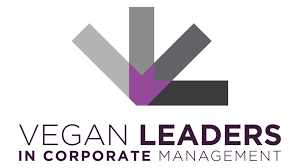Boosting Corporate Wellness: The Link Between a Healthy Workplace and a Plant-Based Diet
In today's fast-paced corporate world, maintaining employee health and well-being has become more than just a trend—it's a strategic necessity. Companies increasingly recognize that investing in employee wellness can lead to enhanced productivity, reduced absenteeism, and a more engaged workforce. A key element of this corporate wellness movement is the adoption of a plant-based diet, which has been proven to provide numerous health benefits and improve overall well-being.
Why Corporate Wellness Matters
Corporate wellness programs are designed to improve employee health and happiness, leading to long-term benefits for both employers and employees. Research from the Global Workforce Institute suggests that for every dollar invested in employee wellness programs, companies can see a return of up to $6. This impressive figure isn't just an abstract concept; businesses like Google have experienced a 40% reduction in healthcare expenses after adopting comprehensive wellness initiatives. These programs can also increase employee retention and improve productivity.
A crucial aspect of corporate wellness is nutrition. What employees eat plays a significant role in their overall health, and more businesses are embracing the benefits of plant-based diets as a core component of their wellness programs.
The Benefits of a Plant-Based Diet in the Workplace
A plant-based diet, rich in fruits, vegetables, legumes, nuts, and grains, is associated with a range of health benefits, including lower rates of heart disease, diabetes, and certain types of cancer. Numerous studies have shown that adopting a plant-based diet can reduce inflammation, boost energy levels, and improve mental clarity—factors that are essential for maintaining high levels of productivity in the workplace.
In a study published by Harvard Health, researchers found that individuals who follow a plant-based diet tend to have a lower body mass index (BMI), lower cholesterol levels, and a reduced risk of chronic diseases. This suggests that promoting plant-based options in corporate cafeterias or providing educational resources about plant-based eating can significantly enhance employees' health and performance.
Practical Ways to Integrate Plant-Based Wellness into Your Corporate Culture
For companies looking to adopt plant-based wellness initiatives, here are some practical steps to consider:
Plant-Based Catering: Offer plant-based meals at company events or in the cafeteria. Highlight the benefits via carbon labelling to encourage employees to try them.
Here is an example of how plant-based swaps reduce environmental impact by Anna Lees, our Regional Engagement Manager in Singapore and Malaysia. Traditional vs. Vegan Chocolate Cake:
Making just this one dessert plant-based reduces carbon emissions by nearly 4 kg (8.8 lbs)—equivalent to driving about 10 miles (16 km) in an average car! The vegan cake requires about 90% less water to produce the ingredients and significantly less land use as well.
The best part? Many people can't tell the difference in taste, as the banana enhances the cake's moisture and sweetness.
2. Educational Workshops: Host seminars or workshops on plant-based nutrition to educate employees about the benefits of a plant-based lifestyle
3. Incentivize Healthy Eating: Offer wellness incentives for employees who adopt healthier eating habits, including plant-based options, as part of broader corporate wellness programs.
4. Support for Local Plant-Based Vendors: Partner with local plant-based food vendors to provide fresh, healthy options in the workplace.
A healthier workplace is a more productive and engaged workplace. By incorporating plant-based diets into corporate wellness programs, companies can enhance the well-being of their employees, reduce healthcare costs, and create a more sustainable and ethical corporate culture. As we’ve seen from influential vegans in the corporate world, adopting a plant-based lifestyle isn’t just good for the body—it’s good for business too.



